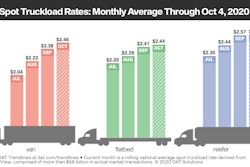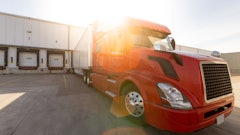
Sysco Corporation is testing an all-electric Freightliner eCascadia from Daimler Trucks North America. Sysco’s participation in this initiative is consistent with its Corporate Social Responsibility (CSR) strategy and the Company’s ongoing efforts to reduce its carbon footprint.
This initiative is a part of DTNA’s ongoing work to engage customers in its commercial electric vehicle development process by deploying trucks in real-world applications. Sysco aims to power more of its tractor fleet with alternative fuels, and deployment of electric trucks will play a significant role in achieving that objective.
“We are excited to partner with DTNA on this important work,” says Neil Russell, Sysco’s vice president of corporate affairs. “Collaborating with manufacturers to develop new truck models that can meet the specialized requirements of food delivery is a vital step toward significantly reducing our impact on the planet. We are proud of the progress we are making towards our CSR goals and, together with DTNA, are confident Sysco will help deliver a better tomorrow for all of our stakeholders.”
Sysco recently deployed the eCascadia, a Class 8 tractor designed for local and regional distribution, and will continue running it in daily operations from its San Francisco operating site through January 2021. Sysco will provide data and feedback from its testing to Freightliner to help it improve on future vehicle design.
“It’s critical that we collaborate with customers across multiple segments to further our understanding of how commercial battery electric trucks will be part of a long-term solution in CO2-neutral transportation,” said Richard Howard, senior vice president, on-highway sales and marketing, DTNA. “Our customers provide important, continuous feedback that contributes to our ongoing design and purposeful innovation of these trucks, and together we will lead the future.”
Sysco participates in the Freightliner Electric Vehicle Council, a group of customers working with Freightliner to identify and address all potential hurdles to large-scale deployment of commercial battery electric vehicles.


















